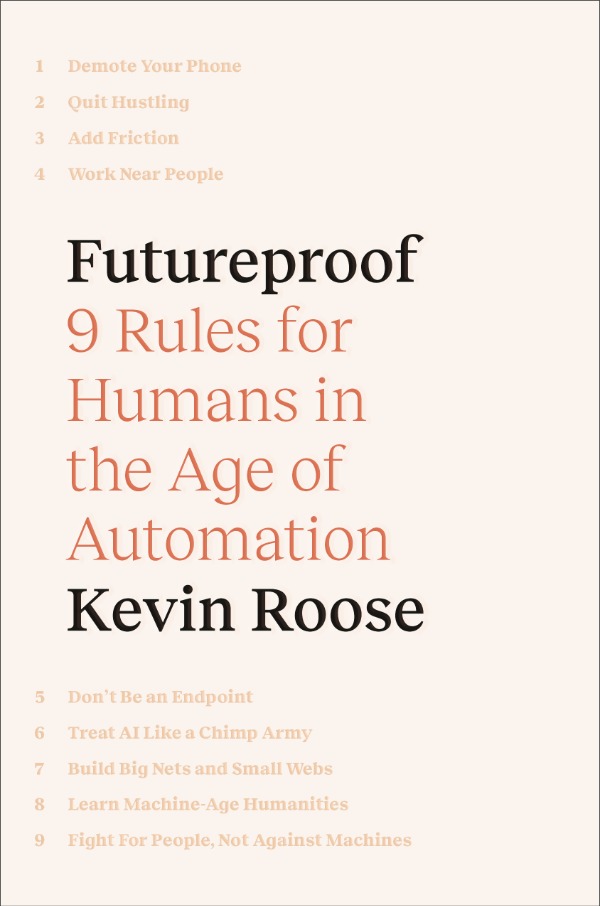Is Your Job Future Proof?
 Amber MacArthur's newsletter turned me on to a new book by The New York Times tech columnist Kevin Roose called Futureproof. which considers the question Is your job future-proof?
Amber MacArthur's newsletter turned me on to a new book by The New York Times tech columnist Kevin Roose called Futureproof. which considers the question Is your job future-proof?
First thought: Is any job future-proof? I'd guess that we will always need doctors, farmers, teachers, police and a bunch of other professions, but as they change will they remain recognizable as their former professions?
As a teacher, I've been hearing for decades that we'd be replaced someday by computers, robots, and artificial intelligence. It hasn't happened yet, but that doesn't mean it won't happen after I have left the planet.
The age of automation has been with us since the last century. We have all seen how some industries, like automakers, have automated many jobs that were done by humans. Some humans are still there working with robots and such but not very many. I once toured a beer bottling facility and the observation area was decorated with a timeline showing the place over the years. The thing that immediately hit me was that as we moved through the 20th-century photos was that people were vanishing from the photos. A crowd of humans was putting bottles into boxes in the 1920s and on the floor in front of me now was one person on a platform operating controls for it all to be done by automation.
Automation doesn't take breaks, call in sick, slow down at the end of the day, join a union, or mind working 24/7 for no extra pay.
Futureproof's subtitle is "9 Rules for Humans in the Age of Automation" and the first rule is to "Be Surprising, Social, and Scarce." Roose's approach is to do things yourself to protect your job.
It's not about defeating the machines because they are here and not leaving and it doesn’t just change our jobs. It changes our entire life experience with AI and algorithms influencing what you watch on screens, what you listen to, the news you get, and on and on.
It's not about becoming like a machine. In fact, Roose thinks you need to be more human. What are the creative, inspiring, and meaningful things you can do that even the most advanced AI can’t do? At least, not yet.
Better technology for medical imaging was welcomed into hospitals, but you still needed humans to read those x-rays, scans, and such. But now, we are finding that AI might be able to more accurately read those results without bias and using comparisons to an ever-growing data collection of other results.
Chess and Go players once thought no machine could beat a master. Wrong.
There is too much in the book to summarize here but think about some of these provocative personal rules: Resist machine drift; Leave handprints; Demote your devices; Treat AI like a chimp army.
Think about one of those rules: "Leave Handprints." It's the idea that we still value human artisanship and service. People are willing to pay a premium for some handmade items - such as artwork - or to be served in a restaurant.
Trackbacks
Trackback specific URI for this entryThe author does not allow comments to this entry
Comments
No comments